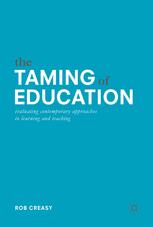

Most ebook files are in PDF format, so you can easily read them using various software such as Foxit Reader or directly on the Google Chrome browser.
Some ebook files are released by publishers in other formats such as .awz, .mobi, .epub, .fb2, etc. You may need to install specific software to read these formats on mobile/PC, such as Calibre.
Please read the tutorial at this link: https://ebookbell.com/faq
We offer FREE conversion to the popular formats you request; however, this may take some time. Therefore, right after payment, please email us, and we will try to provide the service as quickly as possible.
For some exceptional file formats or broken links (if any), please refrain from opening any disputes. Instead, email us first, and we will try to assist within a maximum of 6 hours.
EbookBell Team

4.3
78 reviewsThis book evaluates contemporary approaches to education, with a particular focus on the ways in which assessment shapes the educational experience and influences pupils and students. It adopts a critical approach, arguing that there is a need for students to develop critical thinking skills, be flexible and have the capacity for originality. Education has increasingly come to be seen as a process with qualifications as the output; however, as economies change, attaining advantage increasingly relies on creativity and originality. Unfortunately, in the quest to remove uncertainty from education, creativity and originality are often overlooked; and the result is that education is impoverished. Creasy argues here that there is no single factor that has shaped education and led to this situation; rather, developments within education can be seen as having been shaped by a range of forces such as neoliberalism, New Public Management, standardization and internationalization. This is not to claim any deliberate undermining of education, but the cumulative effect is that education is less and less fit for purpose. Written for anyone involved in education, student, teacher or manager, this book draws upon Educations Studies, Sociology and Social Policy to offer a compelling critique of contemporary education.